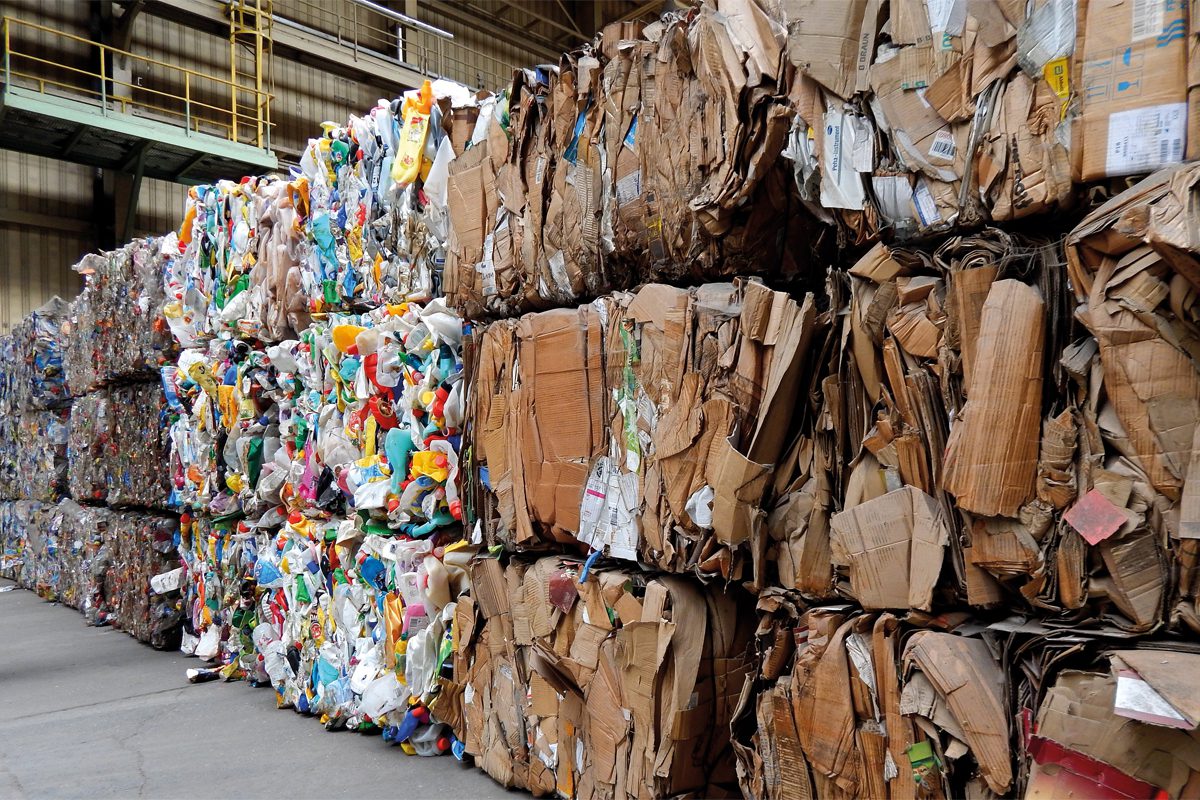February saw an apparent line in the sand emerging between European waste management regulation commentators over the merits of introducing mandatory mixed waste sorting (MWS) – prior to thermal treatment and landfill disposal – versus focusing on making improvements to source separation.

It was a study published on 16 February that seemed to present MWS as a potential “silver bullet” that will allow the waste management sector to achieve the EU’s circular economy objectives. MWS is an effective method for ensuring that energy-intensive materials are not lost to landfill and energy recovery but can instead be recycled, said the study, which was carried out by Eunomia Research and Consulting and published by Reloop and Zero Waste Europe.
MWS could save between 10.2 and 23.2 MtCO₂e/annum, so the results suggested, depending on the success of separate collection improvements. This would mean savings of up to 21% on the total 2020 EU waste sector emissions. “This increases to saving 28 MtCO₂e/annum, equivalent to 25% of EU waste sector emissions, if more ambitious MWS with greater sorting efficiencies is rolled out.”
The study said the introduction of mandatory MWS would also help to ensure that plastic and paper packaging recycling targets for 2030 will be consistently met, and contribute between 2.9 and 8.2 percentage points to the municipal waste recycling targets (depending on the level of ambition in MWS the success of separate collection improvements).
The study examined the potential role of MWS in three countries with high rates of recycling: Germany, Belgium and Sweden. It projected that the addition of mixed waste sorting prior to thermal treatment and landfilling would improve recycling rates from 50% to 62% in Germany; from 53% to 65% in Belgium; and from ~44% to ~58% in Sweden.
Overall, the report concluded that, in addition to separate collection improved recyclability of plastic packaging, “a full roll-out of effective MWS is likely to be necessary to ensure that recycling targets are consistently met progress towards the EU’s wider carbon emissions reduction goals.”
Similar conclusions appear to be reflected in some amendment proposals within the ongoing revisions of the Renewable Energies Directive and the Industrial Emissions Directive.
Not so fast
However, FEAD – the European Federation of Waste Management and Environmental Services – issued a refutation of these conclusions on 17 February, stating that “this is a dangerous message as it undermines years of awareness raising and investments made by the sector to implement and ensure the functionality of source separation of municipal waste by our citizens.”
“Source separation is mandatory under the Waste Framework Directive precisely to ensure quality recycling. Consequently, separately collected waste shall not be incinerated nor landfilled. Exceptions to separate collection are possible in specific circumstances, and then, a prior mixed sorting system could play a role. FEAD strongly supports the improvement and increase of ‘source separation’ as the most efficient and effective way to ensure quality recycling.
FEAD continued by explaining that, In addition to source separation, the implementation of mandatory deposit return schemes in the EU is foreseen in the Commission’s proposal to revise the current Packaging and Packaging Waste Directive.
“This will already prevent the biggest part of effectively recyclable waste from being incinerated or landfilled, as will be the case of PET bottles or aluminium cans, which may still be found in mixed municipal waste streams as common ‘to-go’ consumables. Taking the example of Germany, where the separate collection rate is one of the highest in the EU, with a mature EPR and deposit return system, the recent study itself determines that further improvements in plastic packaging collection rates are difficult to achieve.
“Remaining waste fractions that may be sorted out prior to thermal treatment and disposal will mostly not be recyclable, such as non-recyclable plastic packaging, or paper in general, that will be highly and irreversibly contaminated after being mixed with wet waste fractions. The study shows that the addition of a mixed waste sorting system only increases the recycling rate for paper very minimally. A clear indication that such system is not needed there.
“The implementation of mandatory mixed waste sorting systems, if made mandatory for all plants, will have generalised additional resource and energy consumption related costs and environmental impacts (transport of sorted materials, construction and operation of the systems, etc.) at the expense of EU citizens. These factors have not been considered in the study and their impact could be disproportionately high in relation to the benefits they might bring in the achievement of the EU targets.
The statement from FEAD concluded by saying that the group “believes that there are more cost-efficient alternative measures for which there are ongoing investments being made by the industry and that should be prioritised. Mandatory mixed waste sorting systems are not a silver bullet solution to achieving circular economy objectives. Instead, we urge the improvement and increase of source separation and all positive measures that foster the EU recycling markets.
Claudia Mensi, FEAD President said her group considered “the holistic approach to policies in the waste sector to be of paramount importance.”
“The diversity within the EU and within the Member States and the related environmental impact, that such proposals could have, are often overlooked. The mandatory installation of mixed municipal waste sorting systems prior to incineration or disposal may be a solution in specific circumstances. For the rest, our citizens’ participation via source separation will always be preferable.”







